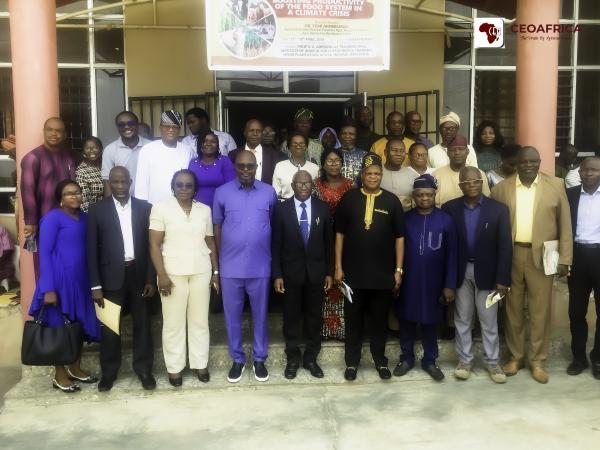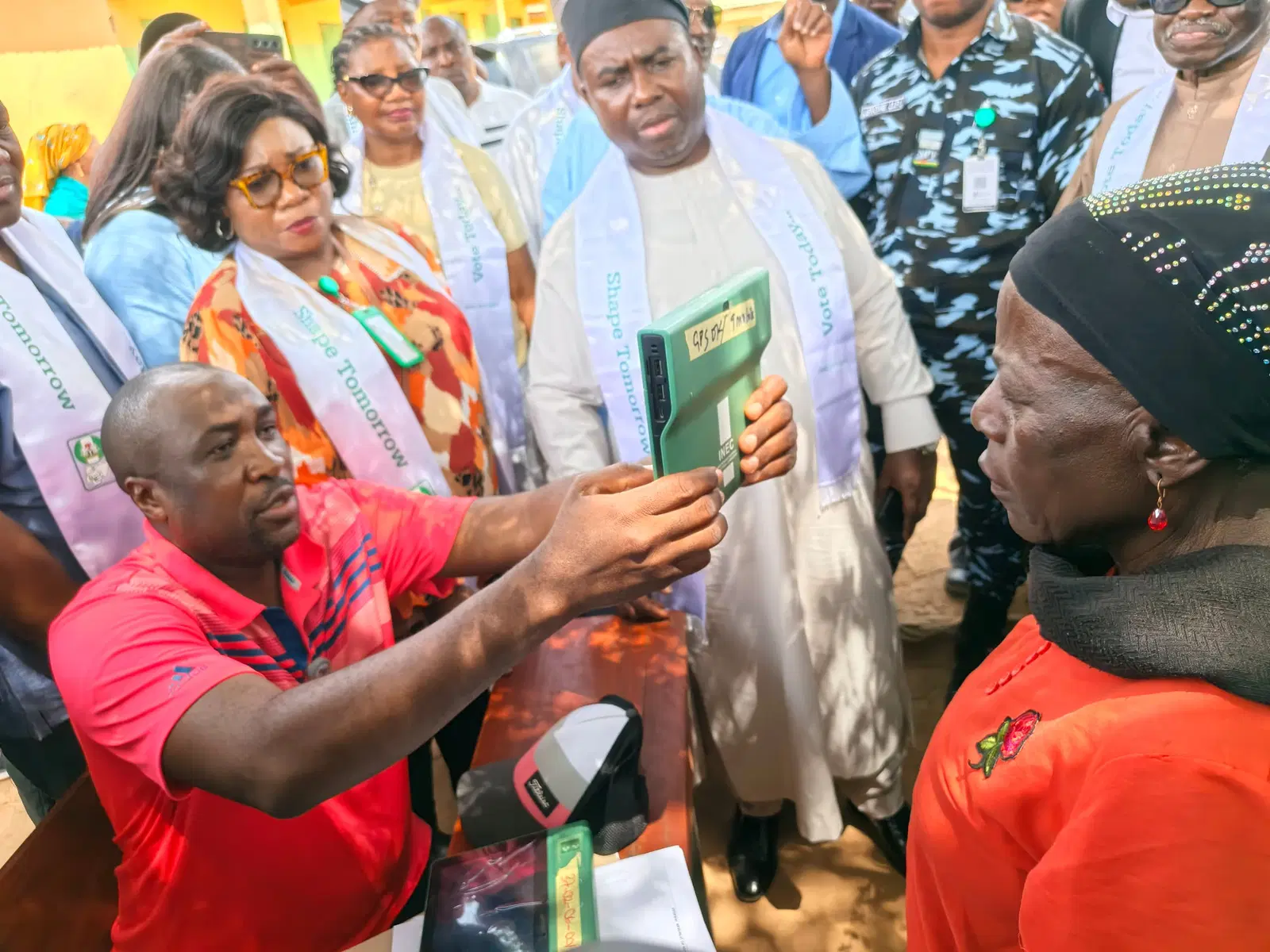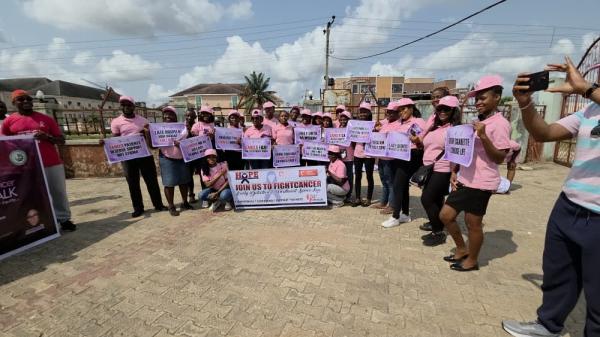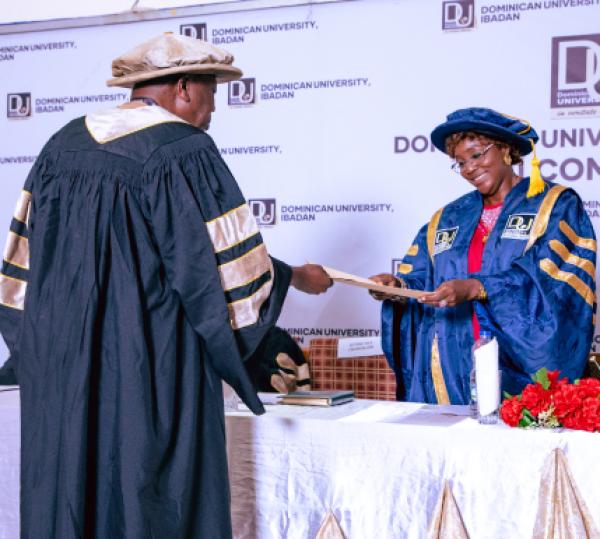
In a bid to showcase its achievements and contributions to the agenda of the Federal Government of Nigeria on boosting agriculture to achieve food security within its research mandate, the Institute of Agricultural Research and Training (IAR&T), Moor Plantation, Ibadan, began the 35th Southwest Research Extension Farmers Input Linkage Systems (REFILS) workshop and 2023/2024 Annual Inhouse Research Review on Monday, April 15, 2024, at Prof E. A. Adebowale Training Hall, IAR&T, Apata, Ibadan, Oyo State.
The event for farmers, agricultural experts and stakeholders, themed “Boosting Productivity of the Food System in a Climate Crisis” is scheduled to last till Thursday, April 18, 2024.
At the opening ceremony of the event, the Osun State Governor, Ademola Adeleke urged the participants to cooperate in ensuring the reality of food security in Nigeria. Represented by the Osun State Commissioner for Agriculture, Honourable Tola Faseru, he noted that agriculture is an important sector for the strategic growth of the economy of Osun State.
Saying that “when the climate is doing its own, for us as practitioners, we have to do double in terms of efforts,” Adeleke added that on the need for continuity and importance of research to agriculture, researchers should be encouraged.
The Vice Chancellor, Obafemi Awolowo University (OAU), Ile Ife, Osun State, Professor Simeon Bamire, who doubles as the Chairman, Governing Board of the Institute, tasked the participants in his Chairman’s address, on the need to leverage on technology, which is taking prime in all areas, to combat the prevalent food crisis in Nigeria.
“This workshop is aimed at enhancing agricultural productivity. I am also delighted to inform you that the collaboration between IAR&T and the university is instrumental to driving positive changes and promoting sustainable development. The synergy between the institute and the university has enabled us to channel collaborative efforts towards visualising research and development in the agricultural sector and other areas, thereby contributing to national development and sustainable development goals,” he said.
Earlier in her Director’s Address, the Executive Director of the institute, Professor Veronica A. Obatolu explained that the focus of this year’s event is to “provide approaches towards increasing agricultural productivity in the face of the emerging global challenges caused by climate crisis” in place of the age-long traditional ways of practicing agriculture and the ever dependence on small scale farmer to feed the ever-growing population of Nigeria which has not provided solutions to the current food crisis.
Priding on some of the recent achievements of the institute, saying “our exploit in the efficient use of soil and water management for sustainable increase in productivity of agricultural crops has resulted in the development of digitalised soil suitability mas in some local government area in the country, alongside complimentary soil and water management technologies and innovations,” Obatolu highlighted dwindling funds as the major challenge affecting the research activities of the institute.
“The institute is ready to partner with any interested agencies, in the area of training and empowerment of youth and other stakeholders in the agricultural value chain,” she said.
The Keynote Speaker, an Agricultural Research for Development Expert, and a former Executive Director, Forum for Agricultural Research in Africa, Dr. Yemi Akinbamijo, advanced the need for generating relevant technological and policy solutions; facilitating stronger connections with markets and industry; facilitating the delivery/scaling out the outputs; course correction of a dysfunctional system-inventory and foresight of human capital, among others.
On the environmental impact of food and agriculture, he summed that, “food lies at the heart of trying to tackle climate change, reducing water stress, pollution, restoring lands back to forests or grasslands, and protecting the world’s wildlife.”
“Agricultural productivity across sub-saharan Africa needs to improve to reduce hunger, poverty and the destruction of biodiversity. To escape poverty, farmers need to increase labour productivity” he said.
Akinbamijo opined that as interventions for increasing systemic productivity, there is need to “strengthen institutional capacity continually, strengthen capacity to transform and empower the youths as key stakeholders not as targets, improve partnership between private and public sector, increased public investment in the innovation platform, effective knowledge, innovation and learning system plus support services for farmers processors and entrepreneurs.”
He concluded that no society has transformed itself socially and economically without adequately leveraging the power of science, especially in the dominant sectors to increase their productivity.
Characterizing the opening ceremony of the IAR&T event were goodwill messages from stakeholders and farmers with a concluding exhibition of the products and research activities of the institute and its affiliates.
Also in attendance at the opening ceremony are, the Lagos Zonal Director, Federal Ministry of Agric and Food Security, Federal Ministry of Agriculture and Rural Development, Mrs Olayinka Akeredolu; Executive Director, Cocoa Research Institute of Nigeria (CRIN), Dr. Patrick Adebola represented by the Director, Research Outreach, Dr. A. O. Adedeji; Dean, Faculty of Agriculture OAU Professor A. A. Tijani; Chairman Security Committee, OAU Professor Oluropo Akinfala, among other dignitaries.






















